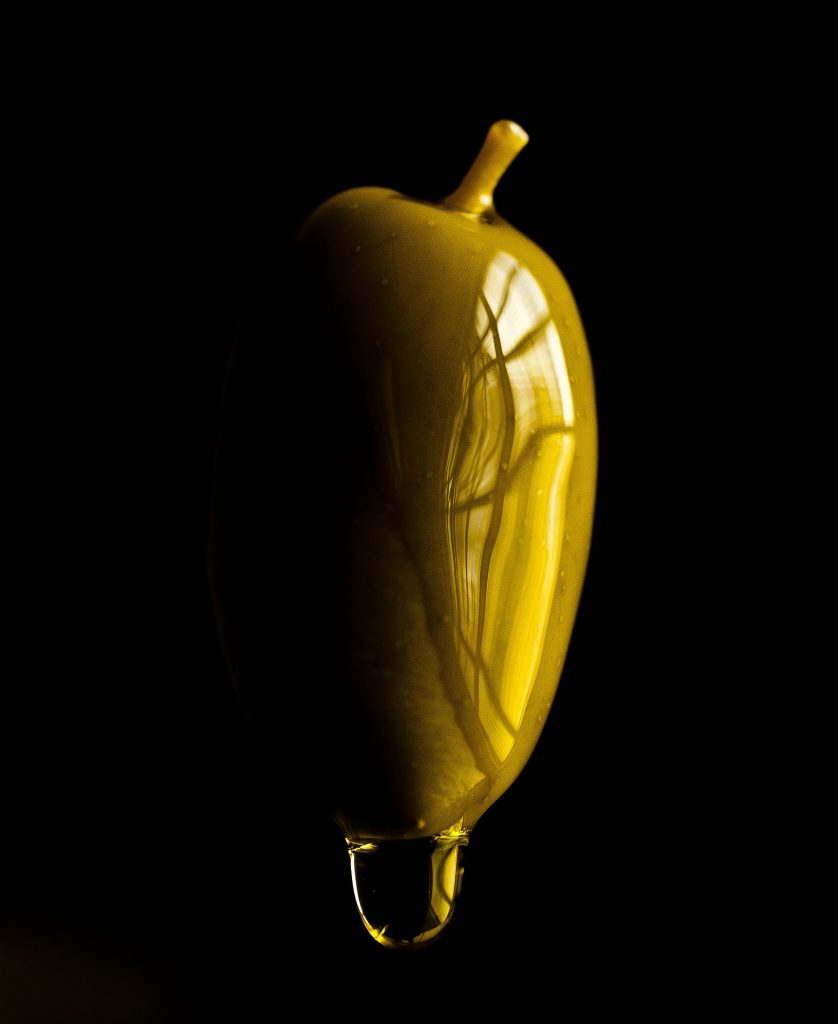 A reasonably large body of research has been published on the effects of olive oil. Olive oil research has shown that certain cardioprotective effects are conferred to those who regularly consume olive oil. It was originally hypothesised that this was due to the monounsaturated fatty acids present in the olive oil. Early researcher erroneously drew conclusions from data to support this hypothesis without considering that other chemicals are present in olive oil. However, at the time this did not matter as the saturated fat hypothesis of cardiovascular disease was in full swing and there was a requirement to ‘prove’ that unsaturated fatty acids, such as those in olive oil, did not share these properties. However, olive oil is a complex mixture of many different chemicals including a reasonably large concentration of phytochemicals that come from the olive and give the oil its green colour. Of these phytochemicals a group called the polyphenols contribute significantly, and they have been shown to have cardioprotective effects.
A reasonably large body of research has been published on the effects of olive oil. Olive oil research has shown that certain cardioprotective effects are conferred to those who regularly consume olive oil. It was originally hypothesised that this was due to the monounsaturated fatty acids present in the olive oil. Early researcher erroneously drew conclusions from data to support this hypothesis without considering that other chemicals are present in olive oil. However, at the time this did not matter as the saturated fat hypothesis of cardiovascular disease was in full swing and there was a requirement to ‘prove’ that unsaturated fatty acids, such as those in olive oil, did not share these properties. However, olive oil is a complex mixture of many different chemicals including a reasonably large concentration of phytochemicals that come from the olive and give the oil its green colour. Of these phytochemicals a group called the polyphenols contribute significantly, and they have been shown to have cardioprotective effects.

Olives are a rich source of polyphenols. Some of these polyphenols are transferred to the oil during pressing, and this may provide the health benefits seen from olive oil.
In the last few decades, researchers have shown that a high intake of polyphenols may produce antioxidant effects in humans. This antioxidant effect reduces oxidative stress and this may be the mechanism by which polyphenols confer cardioprotection. In a recent study, researchers investigated the effects of olive oil polyphenols by feeding healthy subjects olive oil, or olive oil that had had all of the polyphenols removed. The results of the study showed that 25 mL of olive oil for 3 weeks caused a significant reduction in the concentrations of small dense low density lipoprotein (LDL) particles in the plasma of the subjects when compared to the polyphenol-free olive oil. These small dense particles are considered atherogenic and high concentrations may significantly increase the risk of cardiovascular disease. In addition, the researchers showed that the time required to oxidise the LDL particles was significantly reduced in the subjects consuming olive oil, compared to the polyphenol-free olive oil.

Extra virgin olive oil contains higher concentrations of polyphenols compared to regular olive oil, hence its darker colour. In addition, extra virgin olive oil is formed only through mechanically pressing, and so is less likely to be rancid compared to regular olive oil.
Dr Robert Barrington’s Comments: These results show that cardioprotection from olive oil may be due to the polyphenols contained within olives. Therefore the oil itself may not have any cardioprotective effects, as was once suggested. Eating olives would therefore likely be a superior method of obtaining these polyphenols because it allow ingestion of the polyphenols without a concentrated form of monounsaturated oil. Consumption of whole olives also allows inclusion of the original fibre from the olives, which may have further health effects. If olive oil is used, it should not be heated and so cooking with olive oil should not be considered. In addition, only extra virgin olive oil should be consumed as this has been extracted only using pressing, with the absence of heat. The oil is therefore less likely to be rancid. The darker colour of extra virgin olive oil also reflects the fact that it contains higher concentrations of the polyphenols present in olives, when compared to regular olive oil.
RdB
